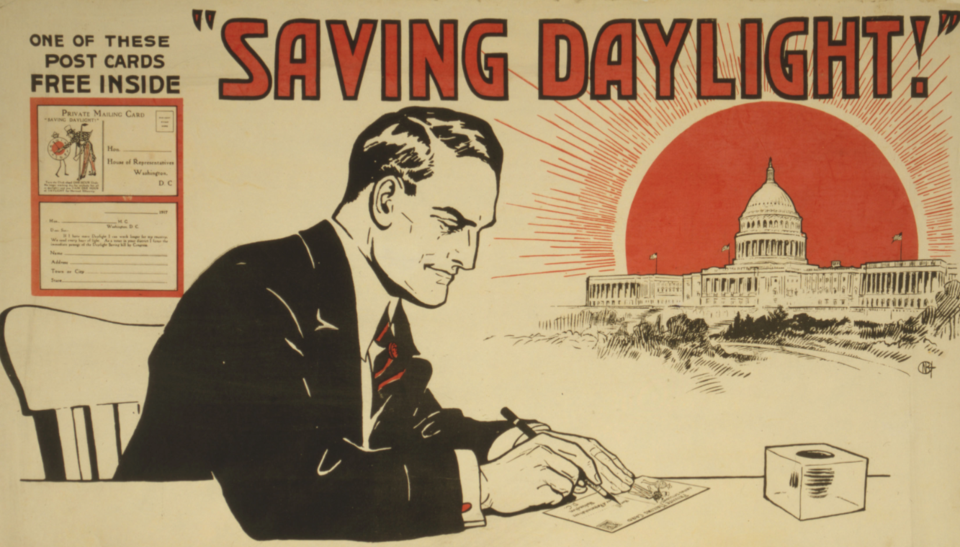While it’s always nice to have a ready-made excuse for being late for work on a Monday morning due to once again “accidentally” confusing the expression fall back/spring forward with fall forward/spring back, the clock watchers of K&K have never had much time for the idea of Daylight Saving Time.
And it’s not just because everybody knows that only Superman has the power to turn back time by flying really fast around the planet a few times. It’s more to do with the fact Daylight Saving Time (and no, technically there isn’t an S at the end of the word “saving”) makes absolutely no sense.
Ben Franklin — he of “early to bed and early to rise” fame — was the first to fly the idea while serving as the U.S. ambassador to France and noticed the sun rises over there a bit earlier than he liked. Presumably he would’ve preferred to spend a bit more time in bed with the Parisian prostitutes he was so fond of.
The Americans first made it law in spring of 1918 during the First World War as a means to save energy — the rationale being pushing daylight back later in the day would translate to fewer lights turned on at night — and the Canadian government, in typical fashion, politely agreed to go along with it. It could also have something to do with the fact that Type-A lawmakers tend to be morning people.
Recent penetrating studies into the obvious have shown, however, that changing the clocks back doesn’t actually save energy at all because people simply use more power in the now-dark evenings.
And messing with people’s circadian rhythms, even by just a mere hour, comes with surprisingly disastrous results, mainly because stressed out North Americans are already typically operating on an hour-and-a-half less sleep than we were a century ago. The number of heart attacks goes up by nearly 10 per cent on the first three days after the time change, way more people crash their cars or injure themselves on the job, and economists estimate that screw-ups by sleep-deprived traders on Wall Street cost billions of dollars each year.
There’s more. The date to switch back the clocks used to be in mid-October but this changed to early November in 2007 when the U.S. Congress passed the Energy Policy Act after heavy lobbying by, among others, the candy industry. Turns out Big Candy earns a sweet $2 billion or so annually on Halloween and they wisely figured out that adding an extra hour of light would be good way to boost profits even more.
It’s up to you to decide if dragging yourself home from work in the dark instead dragging yourself out of bed in the dark is a trick or a treat.



